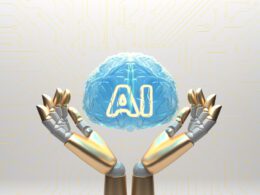Search engines have come a long way from the blue-link results we relied on a decade ago. In 2025, artificial intelligence is at the core of how we find information online. From real-time answers to context-aware suggestions, today’s AI-driven search engines are reshaping how we interact with the internet.
What started as a subtle change in how results were ranked has evolved into a complete overhaul. Instead of just matching keywords, modern search engines now understand intent, summarize complex information, and even engage in conversation—all in milliseconds.
Google’s Generative Search Experience
Google’s Generative Search Experience (SGE) delivers concise, AI-generated overviews at the top of search results. These summaries are built using multiple sources and advanced large language models—giving users the answers they need faster and with less effort.
Microsoft Bing + ChatGPT
Microsoft’s approach is equally ambitious. With Bing’s integration of ChatGPT, the platform now supports natural language queries, image-based prompts, and multi-turn conversations. Their latest update adds real-time citations, memory, and visual response cards—all designed to make search feel more like a helpful assistant than a tool.
Emerging AI Search Startups
Startups like Perplexity.ai and You.com are offering ad-free, citation-rich AI search experiences that focus on privacy, speed, and clarity—providing a compelling alternative to ad-heavy platforms.
How Search Is Changing SEO
With AI becoming the default interface for online discovery, content creators and marketers must rethink their approach. It’s no longer just about ranking high—it’s about being clear, credible, and structured in a way that AI models can recognize and surface in summaries. Topical authority, schema markup, and factual consistency are more important than ever.
The Future of AI Search
Search in 2025 feels more like a conversation than a command. As AI continues to evolve, expect engines to get even smarter—anticipating what users need before they finish typing. One thing’s for sure: the way we search has changed forever.









